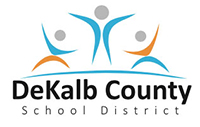Freedom MS scholars travel to Michigan to share ideas on water crisis.
 A recent trip to Michigan has empowered a group future-minded Freedom Middle School students to change the world for the better.
A recent trip to Michigan has empowered a group future-minded Freedom Middle School students to change the world for the better.
Freedom’s “Freebots” Robotics Team traveled to the cities of Lansing and Flint in Michigan on November 30 and December 30 to share their ideas on improving water quality.
Improvements to hydrodynamics – how to better use, store, dispose and transport water – is the Freebots main course of study for the 2017-2018 school year. Among learning how to work as a team, build robots out of LEGO blocks, and program these robots to accomplish certain tasks, the team has also been seeking solutions to one of the world’s largest problems: water sanitation.
 “We discovered that 80 percent of people who die in third world countries do so because there’s something in their water,” said Carla Kabwatha, ESOL Connections Teacher and Freebots Robotics Coach. “Look at Houston. Look at Peurto Rico. Our water can also become contaminated here because of natural disasters.”
“We discovered that 80 percent of people who die in third world countries do so because there’s something in their water,” said Carla Kabwatha, ESOL Connections Teacher and Freebots Robotics Coach. “Look at Houston. Look at Peurto Rico. Our water can also become contaminated here because of natural disasters.”
The team—made up of Fikir Ademe, Bekam Alemayehu, Isaiah Bryant, Syaaban Esop, Travis Herndon, Jr., Lindsey McFarland, Camden Porch, Ridwana Shamsul and Tuba Tahir—came up with the solution of building the “Waterworks Machine,” a practical version of a water filtration system used by the United States military.
The Waterworks Machine acts as a portable water treatment plant. According to the Freebots, such a device could be crafted using acrylic glass and reduce the cost to approximately $100,000. The machine runs off solar energy in the summer and wind energy in the winter to assure it can be used anywhere in the world, year round.
The Freebots developed the idea after meeting with water experts at Hartsfield-Jackson Airport, the Centers for Disease Control & Prevention, local business Ad-Tech International, Georgia Tech, and the Atlanta Hemphill Water Treatment facility.
 According to Kabwatha, meeting with experts and developing a solution based on their guidance is a main portion of the Freebots’ year-long competition. One of the most important components is also presenting the solution to an official directly affected by it.
According to Kabwatha, meeting with experts and developing a solution based on their guidance is a main portion of the Freebots’ year-long competition. One of the most important components is also presenting the solution to an official directly affected by it.
Enter state and local officials in Lansing and Flint, Michigan.
In 2014, due to improper and insufficient water treatment in Flint, more than 100,000 residents drank and deadly amounts of lead in the town’s water supply. While the town has reduced lead levels and life in the town has returned to normal, the crisis has remained in the hearts and minds of water and infrastructure experts nationwide.
What’s more, the situation offered a great chance for the Freebots to shine.
“Flint is still dealing with this problem,” Kabwatha said. “We learned about chemicals needed to reduce lead and the original source of the problem.”
Kabwatha wrote Michigan Governor Rick Snyder explaining the Freebots’ intention of helping. She was soon put into contact with Rich Baird, Transformation Manager for the Michigan Governor’s Executive Office and Scott Hiipakka, Program Management Director.
Not only were the two officials willing to meet with the Freebots, they were eager to hear the team’s proposed solution to water crises like the one in Flint.
Little over a month later, the entire Freebots team, with Coach Kabwatha and Assistant Coach Cora Adu, presented their findings. The team also toured the state capital and received the royal treatment in Lansing and Flint.
“I am so proud,” Kabwatha said. “Students loved it. They’re amazed and so proud. The people of Flint treated us so well that it brought tears to my eyes—they were so accepting and so willing to hear about our project. They were so happy that someone as doing something to help.”
The Freebots received an up-close-and-personal look at how university-level robotics programs operate. According to Kabwatha, a tour of Kettering University, a four-year science, technology, engineering and mathematics (STEM) college in Flint, won over students by exposing them to advanced versions of the craft.
Students also learned how to patent and market inventions.
“Every student in the Freebots wants to go to college in Flint,” Kabwatha said. “The school is up there with Georgia Tech.”
Kabwatha said words cannot describe how proud she is of the Freebots. She said she hopes the team’s success in Michigan continues in other segments of the robotics competition.
Regardless of how the Freebots perform in competitions to come, Kabwatha said the trip accomplished the team’s mission of empowering students to change the world for the better.
“This is all about agency,” Kabwatha said. “This is showing them real world problems and letting them know they have a voice in solving them. The fact the Freebots were able to research this problem and present that research to people it affected is life changing. The sense of empowerment there cannot be learned any other way. Even if it can, this is the best way.”


